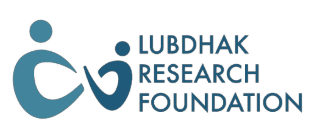Acquiring the Disability Certificate
Accessing the Entitlements from the Govt. of India
As the government provides benefits and facilities to people with disability, the access to it comes only with the holding of the “DISABILITY CERTIFICATE”.
What is a disability certificate?
Disability certificate is a document, which specifies the type and extent of disability. This is the proof, which is vital to avail all the benefits and entitlements provided by the government- ranging from admissions in schools, colleges, availing of medical facilities, concessions and reservation in jobs.
How and where to get the certificate?
The rules lay down that a Medical Board, duly constituted by the Central and the State Government, shall issue a Disability Certificate.
The disability certificate issuing authority is usually a government hospital. In Delhi, the department of social justice and empowerment has released a list of hospitals from where the disability certificate can be issued.
For those with a neurological disorder like autism the hospitals where disability certificate will be issued includes:
1. Janakpuri Super Speciality Hospital
2. Deen Dayal Upadhyay Hospital
3. Vardhaman Mahavir Medical College and Safdurjung Hospital
4. Lady Hardinge Medical College and Hospital
5. All India Institute of Medical Sciences(AIIMS)
6. Institute of Human Behaviour and Allied Sciences(IHBAS)
The single specialist doctor of the concerned specialty, Psychiatry, Neurology, Neurosurgery in case of neurological disorders will determine the extent of disability. The minimum eligibility cap to get a certificate is defined at 40%.
Validity of the Certificate:
The card has a lifelong validity when issued to a disabled person – above the age of 18 years. For disabled children below 18 years of age, the card is required to be updated once every five years. No fresh medical examination is necessary in the case of permanent disability.
In order to get a disability certificate, a person requires a birth certificate and proof of residence. If a child is born at home, parents can get the birth certificate from their district magistrate. In the case of persons with mental retardation, autism, cerebral palsy or multiple disabilities, application can be made by the legal guardian.
